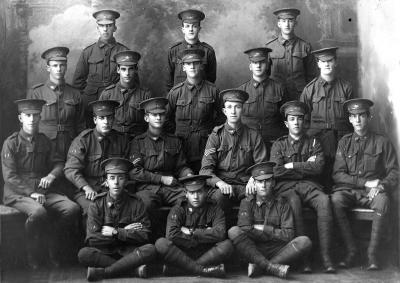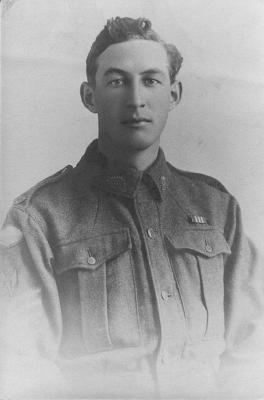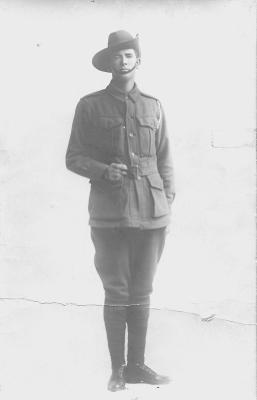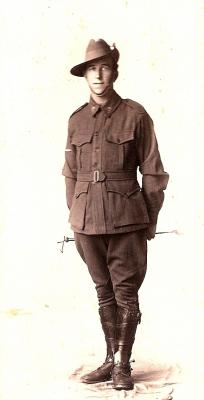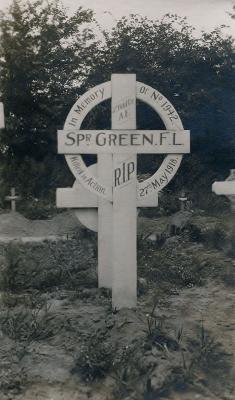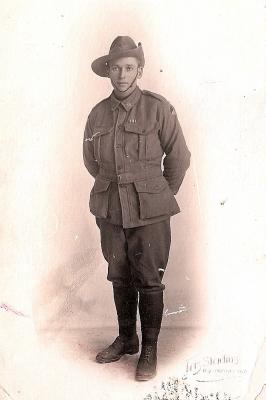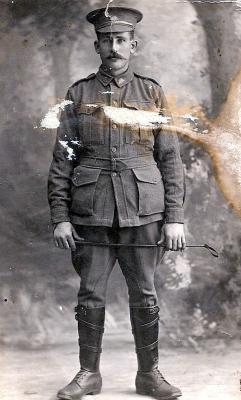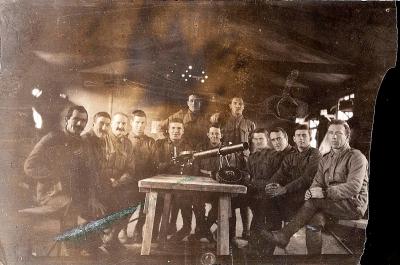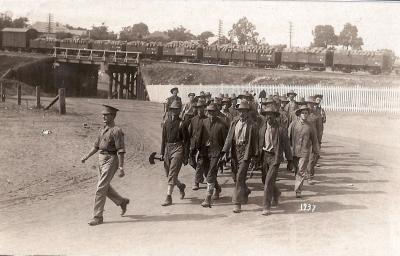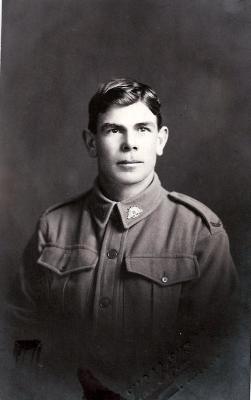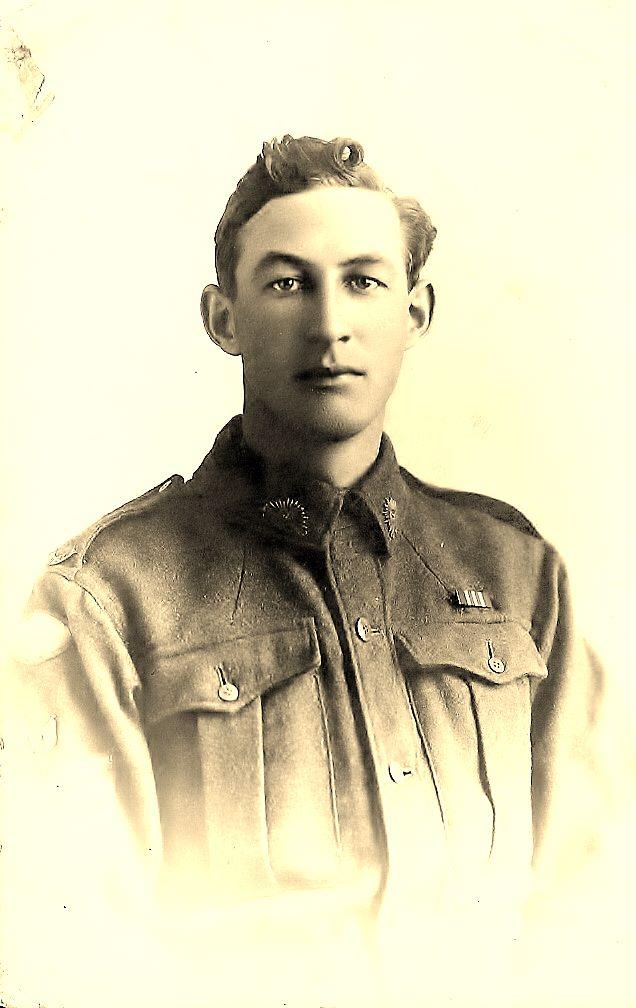World War 1, Europe, 968 PALMER, MM, 44 Battalion, 1918
1918Studio portrait of 968 Sergeant Charles Thomas Palmer Military Medal, 33 Battalion, 6th Reinforcements, of Merredin
The 44th Battalion was established in February 1916 in Claremont, Western Australia, as part of the 11th Brigade of the 3rd Australian Division. Commanded initially by Lieutenant Colonel William Mansbridge, it earned the nickname "Old Bill's Thousand." The battalion left Australia on 6 June, arrived in Britain for additional training, and reached France in late November. It saw its first frontline action on the Western Front on 29 December.
Throughout the winter of 1916-17, the 44th Battalion alternated between frontline duties and work in rear areas, interrupted only by a major raid on 13 March 1917. Its first significant battle was at Messines in Belgium from 7 to 10 June. Following this, the battalion was actively engaged in the Ypres sector, participating in the battle for Broodseinde Ridge and enduring severe losses. Of the 992 men involved, only 158 returned unscathed by the time the battalion was relieved on 21 October.
For the next five months, the 44th Battalion rotated between rear and front lines in Belgium. When Germany launched its last major offensive in March 1918, the battalion was quickly deployed to France, helping halt the advance on Amiens. As the Allies prepared their own offensive, the 44th took part in the battle at Hamel on 4 July and was involved in the major Allied push starting on 8 August. The battalion's final action was breaching the Hindenburg Line at the St Quentin Canal in late September. Severely depleted by then, it was relieved from the front before the war's end and disbanded in May 1919.
Details
Details
Military Medal
'During the operations from 22nd August to 26th August, 1918, east of BRAY, this N.C.O. was responsible for the maintenance of telephonic communication within the Battalion Area. Owing to heavy shell fire wires were most frequently broken. On very many occasions when a break occurred, this N.C.O. went forward in heavy shell and machine gun fire and repaired the breaks. Owing to his gallant conduct telephonic communication was maintained throughout the whole of the operations, which enabled the Battalion Commander to keep in touch with all phases of the attack.'
Source: 'Commonwealth Gazette' No. 115
Date: 10 October 1919
Australian Army Museum of Western Australia
Australian Army Museum of Western Australia
Other items from Australian Army Museum of Western Australia
- World War 1, Australia Western Australia, PALMER, 44 Battalion, 1915
- World War 1, Europe, 968 PALMER, MM, 44 Battalion, 1917
- World War 1, Australia Western Australia, 28 Battalion, 846 FITZPATRICK, 1915
- World War 1, Western Australia, BROWN, 44 Battalion, 1915
- World War 1, Europe, 1942 GREEN, 1918
- World War 1, Europe, GREEN, 1918
- World War 1, Europe, 3441 STONEHOUSE MM, 1918
- World War 1, Australia Western Australia, 1916
- World War 1, England Wiltshire Larkhill, 1917
- World War 1, England Wiltshire Larkhill, 1917
- World War 1, Western Australia Claremont, 44 Battalion, 1916
- World War 1, Australia Western Australia, 2107 HAMMOND, 44 Battalion, 1916
